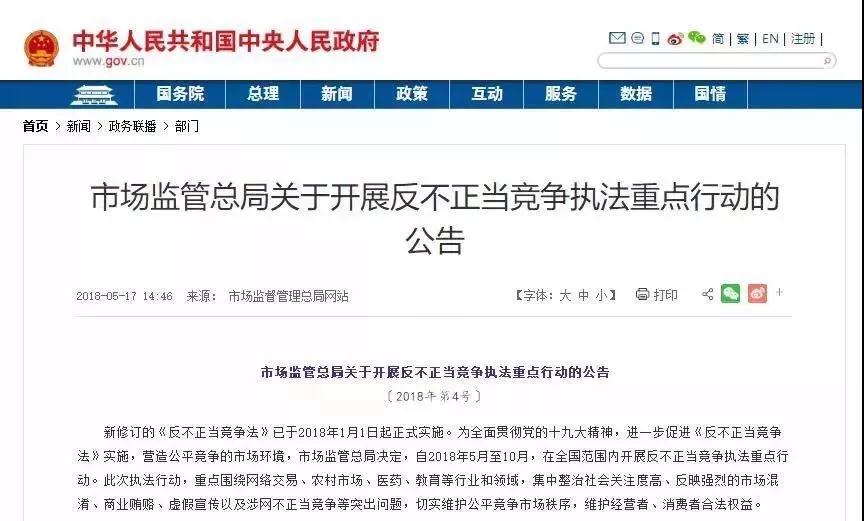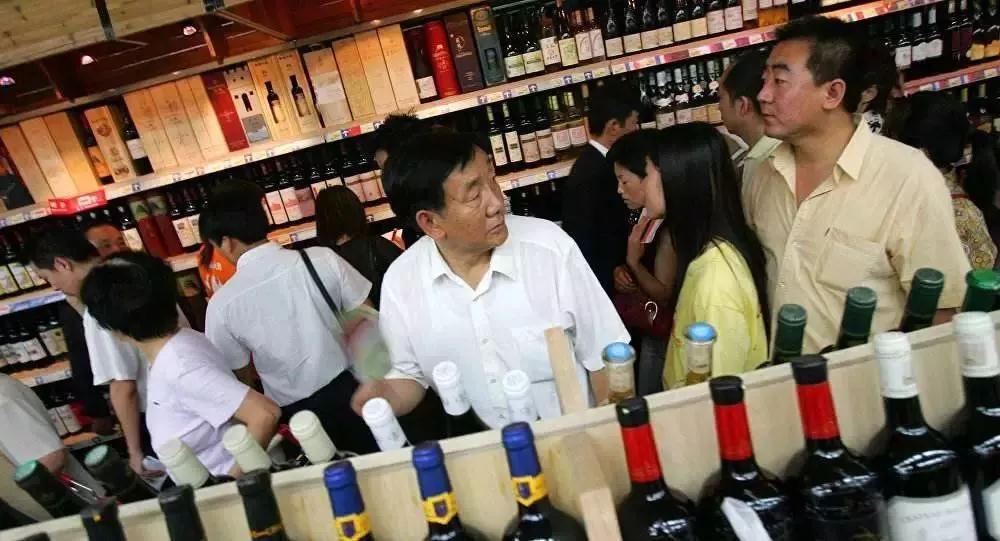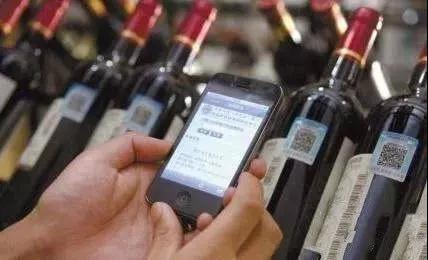Chinese Government Set Law to Protect Real Wine Brands

Write | WBO Team
Translate and Edit | WBO Kiwi
A few days ago, State Administration for Market Regulation issued a public announcement against intellectual property infringement.
This announcement not only refers directly to all kinds of “copy-cat” products, but also lists alcoholic products as key governance objects.
Regulations fight against copy cat wines
The announcement pointed out: from May 2018 to October, the key actions of anti unfair competition law enforcement were carried out nationwide.
The key actions will focus on unauthorized acts of using same or approximately identity of one’s name, packaging, decoration, etc., and using the name of influential enterprises (including abbreviations, names, etc.).
In addition, the use of registered trademark as the name of the enterprise, misleading the public and forming unfair competition are also listed as one of the main targets of enforcement legislation as well.
The announcement shows that this action will strengthen the protection for leading enterprises in the industry, well-known trademarks, influential brands, and trade secret of technology intensive enterprises. The official will also focus on the rural market and urban- rural continuum areas.
It is worth mentioning that one of the three commodity fields in which the action is “Alcoholic Commodities”.
Township markets are “severe afflicted area” for copy-cat wines
A lot of copy cat wines were unauthorized in the use of certain brand name and packaging similar to big brands, and even wine traders registered name of well-known brands or similar name as their own company name.
Wang Dehui, marketing expert of wine industry, said that there have been many related events in the wine industry on intellectual property rights, as well as a variety of copy cat or even counterfeiting events, and more such events emerged
in the past two years. From this perspective, officials should look into wine industry.
Wang believes that the announcement is a clear signal, indicating that our government will focus on intellectual property rights on wine industry.

We should give full play to the power of civil rights
The announcement of t State Administration for Market Regulation also described that vintner should make full use of legal weapons to protect their legitimate rights and interests when they discover brands with unfair competition acts.
The industry organizations should play a leading role, all sectors of the society and consumers can report to the local industry and market supervision and management departments.
According to WBO, many big wine brands, which were obsessed by copy cat brands, have been actively safeguarding their rights in long term.
According to the representative of TWE, TWE is currently cooperate with government to fight against copy cat brands, taking comprehensive measures to combat these infringements, including trademark objections, ineffectiveness, check action and civil litigation and so on.
It is worth mentioning that Penfolds packaging has also been identified by the law enforcement department as the unique packaging and well-known wine, which provides a shield for combating with the copy cat and fake products in the further future.

Regulations and law enforcement need to be further refined
Zhao Chunxiang, a lawyer based in Beijing, also suggested that anti unfair competition law could increase penalties, “If the counterfeiters were prosecuted and punished severely, then no one dare to step across the warning line; however, weak punishment cannot frighten and contain the illegal behavior”, he added.
According to Law of the People’s Republic of China against Competition, in the eighteenth article, the operator violates the sixth provisions of this law to carry out the confusion, the supervision and inspection department shall order to stop the illegal act and confiscate the illegal goods.
The amount involved in the case over 50,000RMB may be fined less than five times the amount involved. The amount involved in the case under 50,000RMB may be fined less than 250,000RMB. If the circumstances are serious, the business license shall be revoked.
According to the seventeenth article, it is shown that when the operators in violation of the sixth and ninth provisions of this law. If it is difficult to determine the actual losses suffered by the obligee and the profit obtained by the infringer, and the court will give the obligee under 3 million for the compensation judging the severity of the infringement.
Therefore, WBO admonishes foreign wineries to keep a close eye on China wine market before satisfying the needs from Chinese importer.